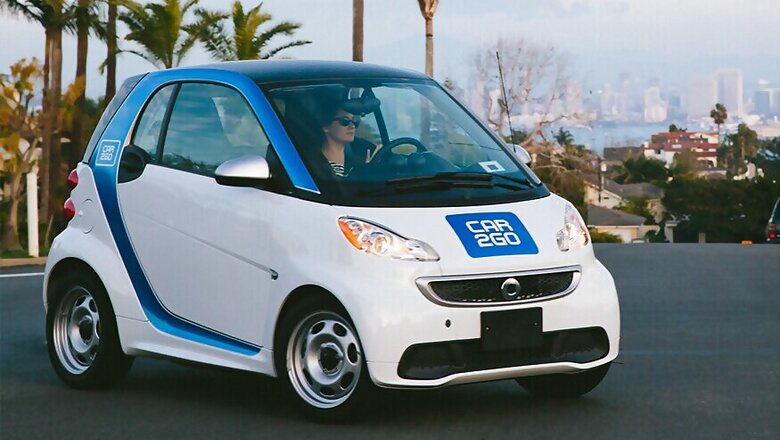
views
As city populations expand, as transit systems become more connected and as the smartphone becomes even more central to the average person's daily life, more car companies are going to start moving away from building vehicles and start embracing car sharing and other mobility services instead.
Daimler's car2go car sharing service this week hit the 2 million customer milestone. The first international free-floating service of its kind when it launched back in 2009 – i.e., cars can be picked up and dropped off at parking spaces rather than at a fixed rental area – it has now become a global brand with users as far afield as Madrid, Berlin, Vancouver and Chongqing.
"Car2go has a unique growth story," said Olivier Reppert, global CEO of car2go. "Since [2009] we have been able to captivate more people in more cities. We plan to continue this growth story consistently."Also Read: Daimler's New 'Hypercar' Coming Soon, to Have Excess of 1000 Horsepower
However, soon car2go won't be a unique story, but very much the norm. As city populations swell, traffic levels increase, public transit systems become smarter and more smartphone connected and as cars and commercial vehicles become semi-autonomous, the need to own a car will diminish.
And it's why at this year's Paris Motor Show, every mainstream marque was highlighting their plans for evolution from carmaker to mobility solutions provider.
VW confirmed that it will be launching a mobility service before the end of 2016 that will combine ride-hailing and car sharing and could eventually lead to autonomous shuttle services.
Likewise, Peugeot and Citroen outlined ambitious goals for its nascent services that are aimed at individuals and companies alike and that will use bicycles as well as car sharing, under the ‘Free2Move' brand.
"Free2Move serves the freedom of movement to our customers," said Grégoire Olivier, Executive Vice-President of Mobility services for PSA Group. "Mobility means not only making and selling excellent cars but also offering a full range of mobility solutions."
According to new Frost and Sullivan data published this week, car sharing services are expected to boast a combined 36 million subscribers by 2025 up from 7.9 million in 2015. And as transit systems become even more connected and integrated, the growth will accelerate.
"Physical integration of public transit systems with car sharing will allow users to book both cars and train tickets through one single mobile app and thereby, enhance convenience and drive member growth," said Mobility Senior Research Analyst Krishna Achuthan.




















Comments
0 comment